Reflo aims to be the world’s most significant sustainable apparel brand
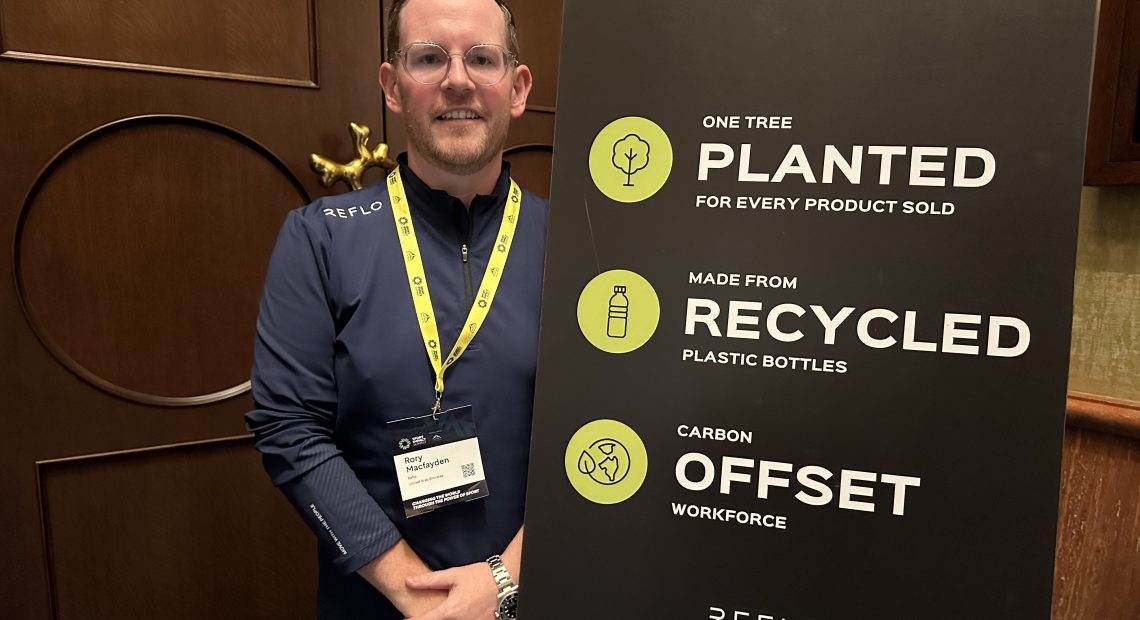
With a big Middle East role
Reflo, the London, UK-headquartered retail apparel and fashion brand, specialises in turning single-use plastic destined for landfill into contemporary technical apparel. At the same time, recycled coffee beans power the brand’s odour control technology.
In October 2024, Reflo entered into a partnership with the Nissan Formula E Team, which will be competing at the forefront of the 2024/25 ABB FIA Formula E World Championship. As the official teamwear and apparel partner, Reflo will provide highly sustainable sportswear to the team. Much of the kit will be made from 100% recycled and 100% recyclable materials, helping Reflo establish a circular apparel system.
Big on sustainability, Reflo participated in the inaugural Sport Impact Summit on December 4, 2024, in Dubai. This global event series aims to coach one billion people to support a healthier, more sustainable planet through sport.
Middle East News 247 caught up with Rory MacFadyen, Co-Founder of Reflo, on the sidelines of Sport Impact Summit for an exclusive interview.
Excerpts from the interview:
Reflo is a name starting to make waves in the clothing industry, particularly in the Middle East. For those unfamiliar with Reflo, could you share with us what Reflo is all about and what sets it apart from other brands?
Reflo is not just a sustainable apparel brand; it is a passion project. We aim to make the least environmental impact possible while delivering high-quality performance wear. Our product range is designed for active lifestyles like golf, gym workouts, running, or playing padel tennis.
Our unwavering commitment to sustainability at every level sets us apart. From recycled waste used in our clothing to planting a tree for every product sold to our packaging, which is made from cornstarch and is fully biodegradable, we prioritise environmental responsibility.
Sustainability is not just a buzzword for us; it is about creating a positive environmental impact. In that order, we focus on three Ps in our business: People, Planet, and Profit. We are proud to offer products that perform well and are made with the smallest environmental footprint possible.
The Middle East is a key market because my business partner and I live here [Dubai]. We have been in the region for over a decade, and it feels like home. We work closely with retailers in the region and are seeing a real appetite for sustainability, which is exciting.
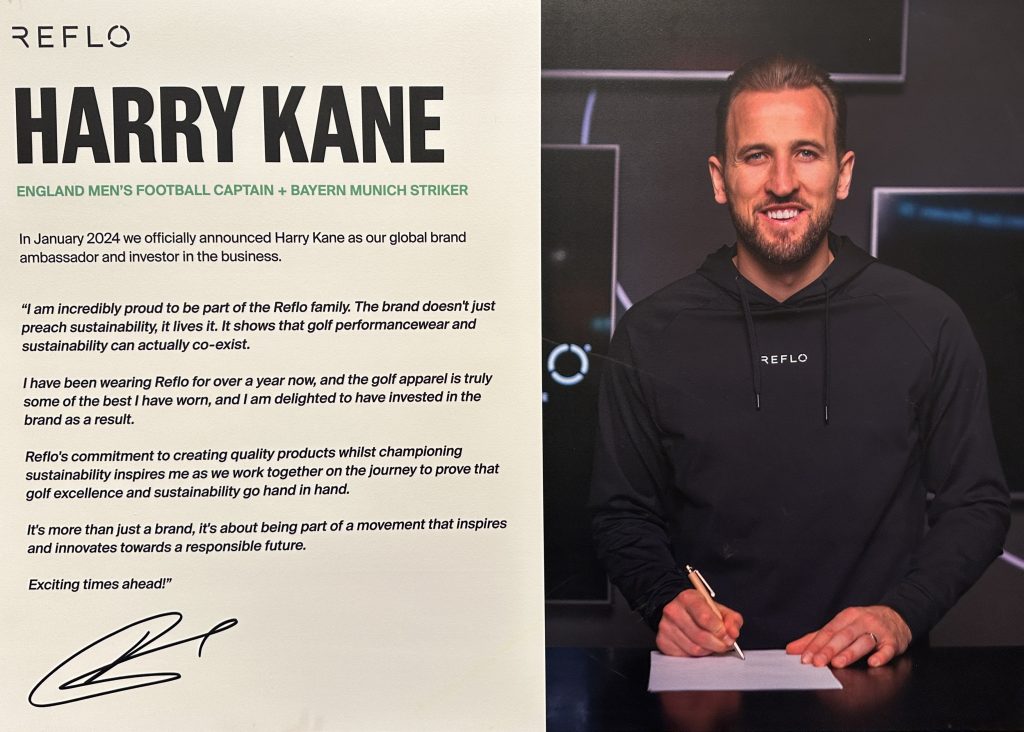
Reflo strongly emphasises sustainability. But what do you think is missing from your product offering in the Middle East market?
Great question. We are one of the few performance-wear brands in the region driven by sustainability, which sets us apart. If I could make a comparison, I would look at the automotive industry. Ten years ago, if you wanted a sustainable car, you drove a Prius, the only option. Then Tesla came along and changed the entire game with high-performance cars that people wanted to drive, making sustainability something to be proud of.
We believe we are playing a pivotal role in the sportswear market. A dominant brand is not yet leading the way in sustainability in the performance wear sector. We aim to be that brand—much like Tesla in the automotive world. We want to drive change and show that performance wear can be stylish, durable, and environmentally responsible. We aim to inspire a new era of sustainable fashion in the Middle East.
In that sense, who are your target customers in the Middle East, and how do you ensure you reach them effectively?
Our customers fall into two main categories: those who purchase directly from our website and those who find our products in retail stores across the region. We do not yet have standalone stores but work closely with local [UAE] retailers like Go Sport and Pro Sports.
A big part of our regional strategy is raising awareness about what we do. We have been fortunate to have global ambassador and investor Harry Kane, the England football captain, help amplify our message. For instance, he recently recorded a video to let customers in the Middle East know that they can now find our products in Go Sport outlets.
We also work with regional influencers, engage in digital marketing campaigns, and use email segmentation to connect with our audience. Additionally, we have specific marketing plans for the Middle East, working with our partners and promoting direct-to-consumer sales via our website.
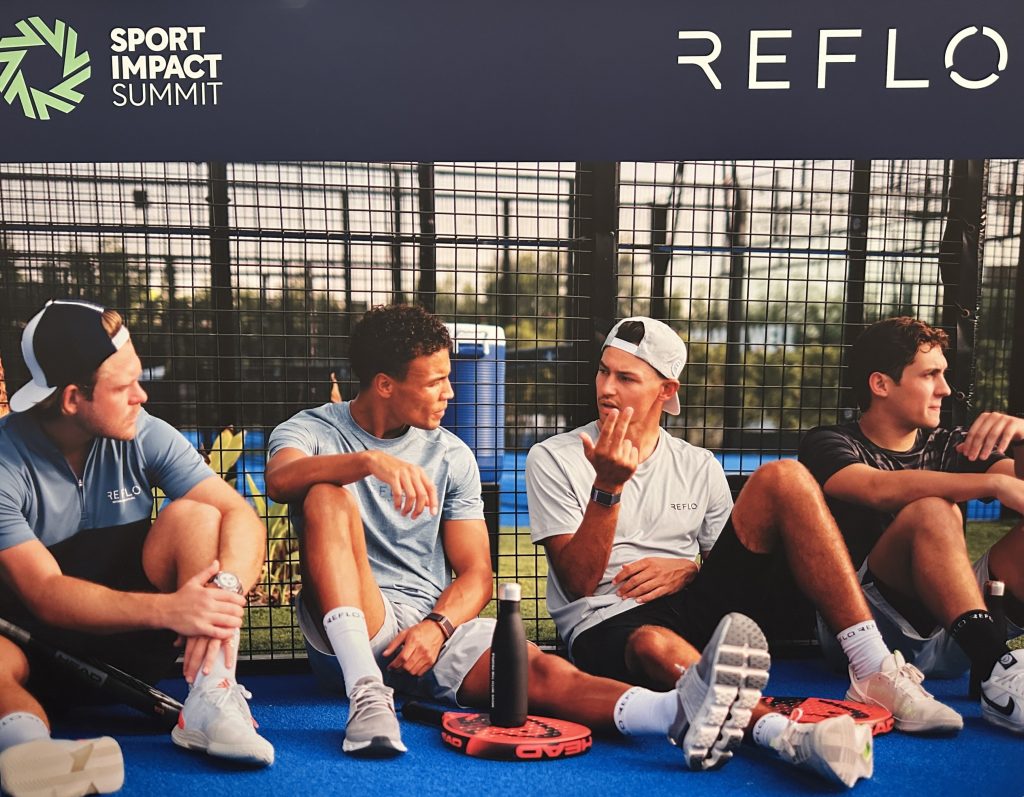
What are the key challenges you face operating in the Middle East market?
I have to say, the region is not just one of the easiest for us to operate in; it is also one of the most rewarding. The region has an entrepreneurial spirit; people are generally very receptive to new ideas and brands. The region is interested in homegrown businesses like ours, and we have received much support. The culture in the region embraces innovation and new ways of doing things. Doing business in the region, particularly in the UAE, is incredibly rewarding, and we are grateful for the opportunities it presents.
In contrast, if we were to launch in the UK, our home market, we would likely face a different set of challenges. The market is more set in ways, and the general mindset is not as open to disruptive change. That is why doing business in the Middle East region, particularly in the UAE, is incredibly rewarding.
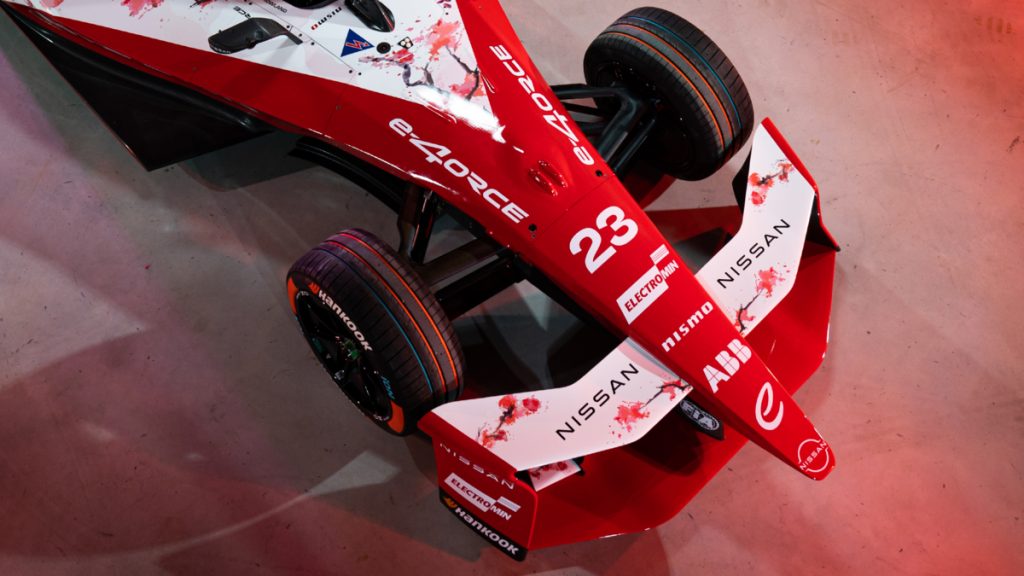
Your production is currently based in the Far East, and you are focusing on keeping it vertical. Can you elaborate on that and explain why it is essential?
Yes, all our production takes place in China, where we work with some of the world’s best recyclers and sustainable fabric manufacturers. Keeping the entire process—from waste recycling to fabric and garment production—within proximity can reduce unnecessary transportation and minimise our carbon footprint. This kind of vertical integration is vital for sustainability.
While we recognise that local production is increasingly important, especially with regional governments pushing for more local manufacturing, it is currently not feasible for us to produce all our products locally. The necessary infrastructure to recycle waste and create garments in one place does not exist in the Middle region. However, we would consider local production in the future should the right partners emerge here.
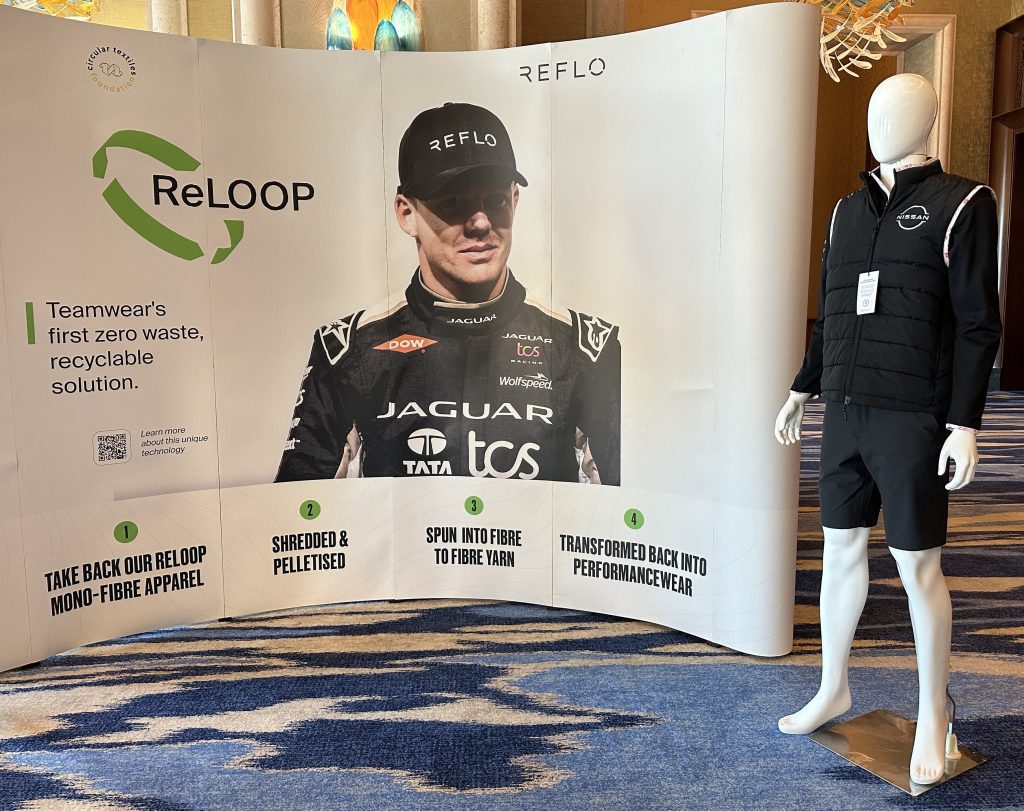
The term ‘sustainability’ is widely used nowadays, but it is often criticised for being used as a marketing tool. How do you ensure your brand is sustainable and not just jumping on a trend?
You are spot on. Too often, sustainability is simply a marketing buzzword that gets watered down. For us, sustainability goes beyond just reducing environmental impact—it is about creating a positive impact. Of course, every piece of clothing has some ecological footprint, no matter how sustainably made. What is important is that we minimise that impact in every way we can and look for opportunities to give back.
For example, all the inks we use for our logos are water-based, not synthetic, which is a much more environmentally friendly option. Additionally, our silicone patches, like my shoulder ones, are made from recycled silicone. So, we do not just design for sustainability—we constantly look for innovative solutions in every part of the design process.
With the UAE government’s increasing focus on local production, do you foresee any plans to shift some of your operations to the UAE?
In the long run, it could be possible. However, it is not something we are focusing on right now. The most critical factor for us is maintaining a vertically integrated production process. That means recycling waste, producing fabric, and creating garments all in one place. Currently, no solution offers that level of integration in the UAE. If that changes, we would be open to exploring local production options.
How important is the Middle East region to your business performance?
The Middle East is crucial to our business. Globally, we have a customer base in over 60 countries, with our core markets being the UK, UAE, Qatar, Germany, and the US. The UAE, in particular, accounts for a significant portion of our revenue—around 20 to 30%. Our partnerships with retailers like Go Sport and Pro Sports in the region are key drivers for us, and the demand for sustainable products continues to grow.
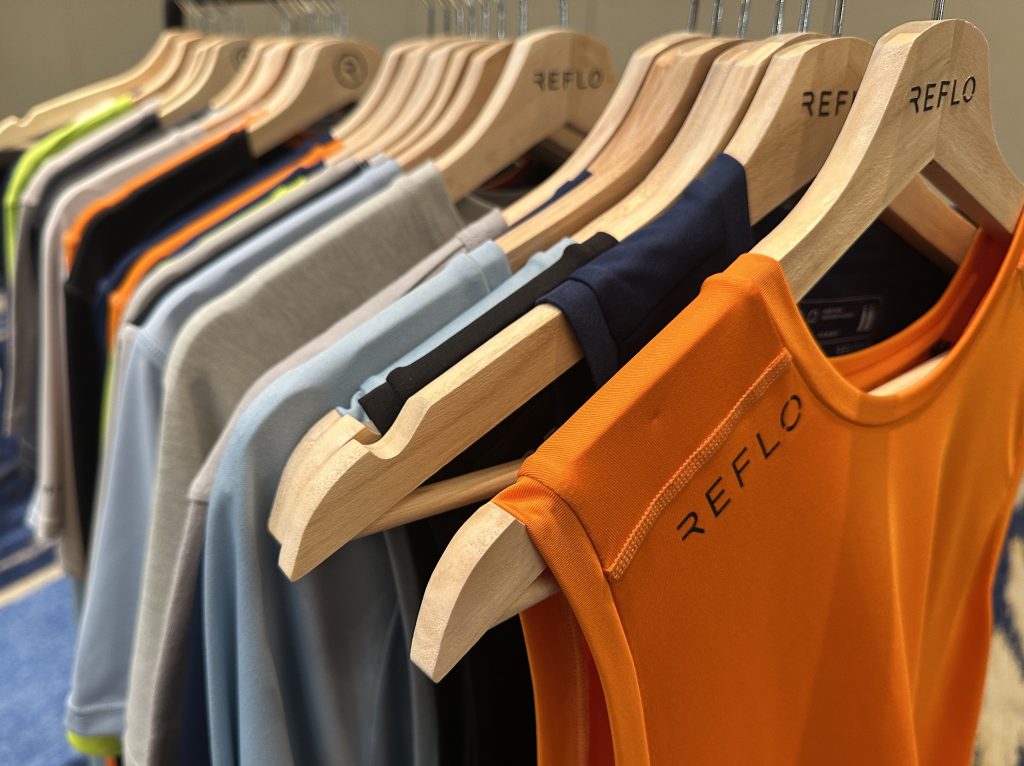
Could you profile your typical customers in the UAE? What age groups and demographics do you appeal to the most?
Our customers in the UAE span a wide age range, and we are proud of that. Sustainability is a priority for people across different demographics, which differs slightly from the UK. We see younger consumers, like teenagers playing golf, alongside older professionals working out at the gym in our gear.
Golf, padel tennis, and gym training are the most popular sports in the Middle East, so our products cater to people involved in those activities. It is fantastic that our brand resonates with such a diverse group of people.
What are your plans for the region in the next five to ten years?
Our ambition is clear: we want to be the world’s most significant sustainable apparel brand. It is a bold goal, but we are heading in the right direction. We have big plans for growth, including launching our retail outlets in the Middle East, where we already have a loyal customer base.
We also plan to expand our presence with sports teams and continue to grow in wholesale, B2B, and direct-to-consumer channels. We are committed to becoming a household name in sustainable apparel.
Hero image: Rory MacFadyen, Co-Founder of Reflo, was a speaker at the inaugural Sport Impact Summit, held in Dubai on December 4, 2024. Credit: Arnold Pinto
Last Updated on 4 months by Arnold Pinto












